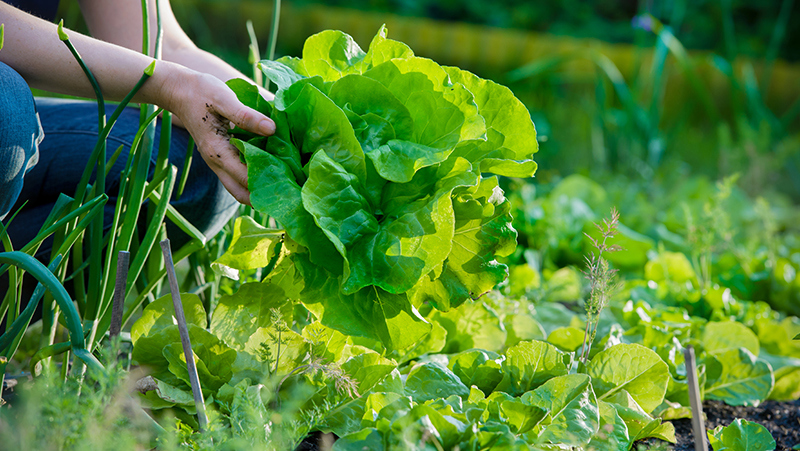Yates Account
Join now
Create a Yates account today!
Sign up to join the Yates Garden Club for monthly e-mails packed with seasonal inspiration, tips for success & exclusive promotions.
Plus if you’re a Garden Club member you can take part in the Yates Growing Community - a blog to share successes, get advice & win prizes in fun challenges along the way!

Forgot password
Enter the email address associated with your account, and we'll email you a new password.

It’s very easy to start a simple vegie garden at home. Imagine bringing our fresh grown vegies and herbs in from the garden and using them in your recipes.
What you’ll need:
- We recommend starting small and plan a 1 by 1 metre square garden bed or even a large pot.
- You can build your garden bed with a range of materials, depending on your budget and what you can upcycle.
- You can also recycle what you have at hand: using timber, bricks logs, pipes or even hay bales as edging.
- Just have a balcony? Then keep an eye out for large pots, barrels or old wheelbarrows. They will all work fine if you remember to water them daily.
What to do:
- Think about sunshine – your vegies will need it to grow big and strong. Place your garden bed where it will get at least half a day of sun.
- If you’re building your garden out on your lawn, first lay down newspaper six sheets thick to stop weeds growing through, and wet it thoroughly before stacking on your no-dig layers.
- Do not buy cheap soil! You get what you pay for, be sure to purchase soil that is of a good blend ensuring the nutrients for your precious plants. When adding your soil be sure to add a few good handfuls of Yates Dynamic Lifter Organic Plant Food.
- Plant seeds or seedlings according to the season straight into your new bed. See our planting tips or talk to us on Live Chat so we can help you out.
- Feeling stuck? Start with leafy greens and herbs, these guys are fast-growing and delicious and will give you the confidence to try something new next time.

A few handy hints and tips:
- Be sure to water your garden well as you create it and when you plant, and regularly as plants grow. The soil should feel damp. In hot weather especially, check the soil to see if it is dry, and give it a deep water if it is – this could mean every day. Check often!
- Mulch: find some pea straw and spread it around your plants. Mulching is very important for retaining water, stopping weeds and improving soil health.
- Keep an eye out for snails and caterpillars, who love new seedlings. Snails can be discouraged by a barrier of coffee grounds or eggshells. This needs to be replaced periodically as it composts into the soil. As plants get bigger they are better at surviving attack and are less delicious for the snails. Keep monitoring for caterpillars, especially if cabbage white butterfly are flying around your vegies. Control them with a spray of Yates Success Ultra Insect Control Concentrate.
- Caring for your soil will be rewarded with a delicious successful harvest. We recommend regularly topping up with Yates Dynamic Lifter Organic Plant Food.
- Don’t give up! Vegetable gardening planning and creation is similar to cooking. You might get poor results in one season and there’ll be abundant growth in another. Natural factors, your hard work and the quality of the seeds you choose will affect the performance of your plants and the subsequent harvest. Don’t give up, even if your efforts don’t give you the desired results on your first attempt.
- Get the family involved. Be sure to involve your kids and other interested family members in gardening. The whole experience should be a relaxing one. Often just being out in the garden will be an enjoyable experience that relieves stress.
And remember…
Love your garden and it will love you! Learning how to plant a vegetable garden is easy. But, maintaining it and achieving success is often the trickiest part. There are several practical issues you will encounter. But, the end result will be the happiness of eating the produce created from your own handiwork and knowledge. There is no satisfaction compared to that feeling.














Share
Share this article on social media